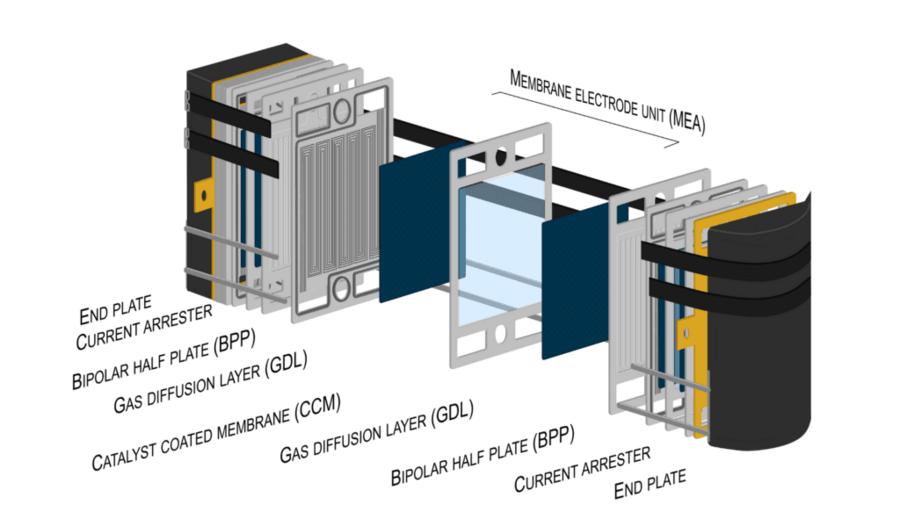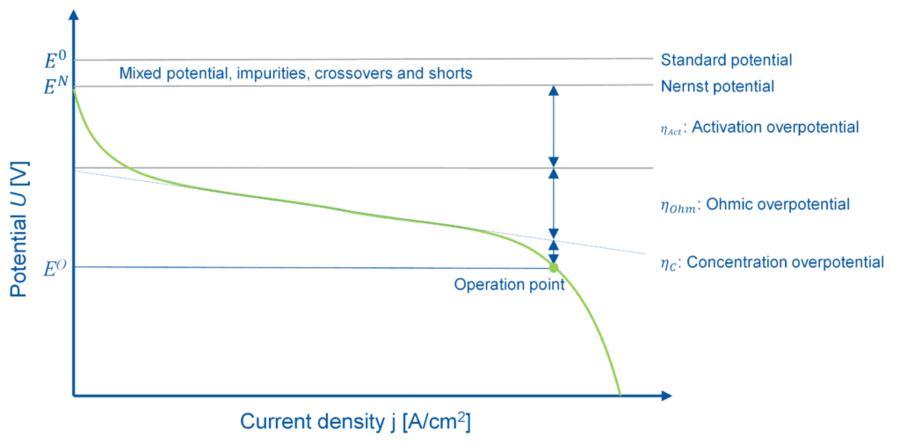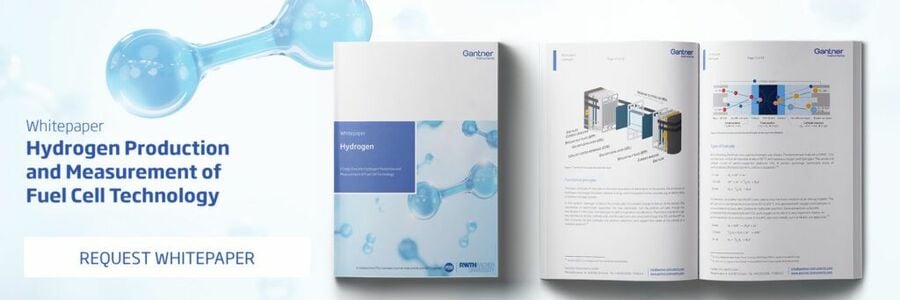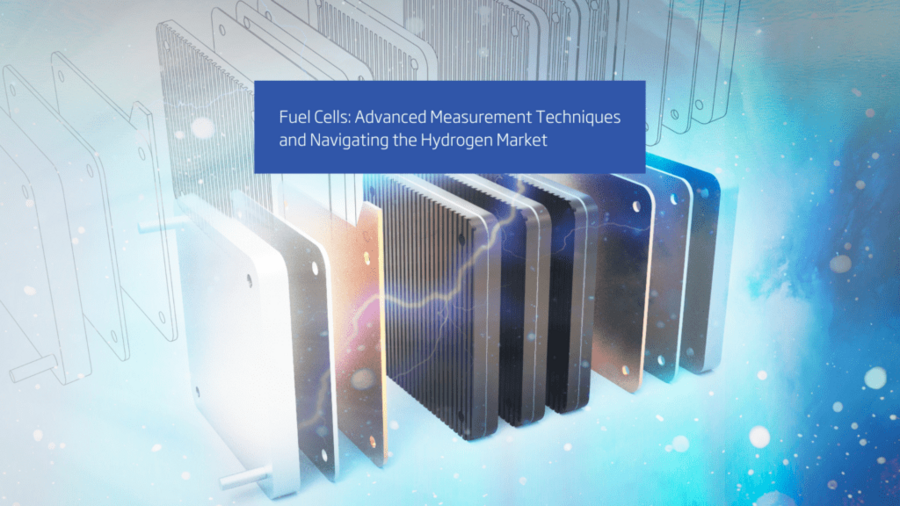Fuel Cells: A Green Energy Game-changer
Fuel cells are pivotal in the energy revolution, providing an efficient alternative to traditional fossil fuel energy sources. With the capacity to power an array of applications, from electric vehicles to reliable backup power sources, their versatility is unmatched. They function by generating electricity through an electrochemical reaction using a continuous supply of fuel and oxygen, a process that can be carbon-neutral.
Moreover, the flourishing hydrogen market plays a critical role in the transition from conventional energy sources to fuel cells. With the potential to function as a key player in the energy value chain, hydrogen, particularly green hydrogen produced via electrolysis, presents a viable pathway to a sustainable future. However, transitioning requires more than swapping out one ‘engine’ for another; it demands a thorough understanding of fuel cells, precision in their measurement, and stringent scientific rigor.

The Necessity for Advanced Fuel Cell Measurements
In science, what we can measure, we can enhance. The inherent power and efficiency of fuel cells are characteristics that can be amplified through meticulous and precise measurements. However, this is easier said than done. Fuel cells operate in challenging environments with high temperatures and quickly fluctuating pressures. To collect accurate, reliable data in these conditions, we must rely on robust, adaptive, and advanced measurement techniques.

Non-Invasive Measurements
One groundbreaking innovation in fuel cell measurement is the use of non-invasive techniques. Non-invasive measurements allow us to monitor and comprehend the behavior of the fuel cell without physically disrupting it. This approach keeps the natural environment of the fuel cell intact, offering the most accurate insights into its performance, efficiency, and lifespan. It’s like having a subtle conversation with the fuel cell, where we decode its responses to various stimuli. This dialogue is not only insightful but also respectful of the fuel cell’s environment, contributing significantly to our understanding of this energy source.
EIS: A Stethoscope for Fuel Cells
Electrochemical Impedance Spectroscopy (EIS) is an essential tool in our efforts to refine fuel cell technology. Think of it as listening to the electrochemical activity of the fuel cell, much like a doctor would listen to a patient’s heartbeat using a stethoscope. EIS allows us to gain valuable insights into the internal dynamics of a fuel cell by applying a small AC voltage and observing the current. This method helps us understand how the cell reacts under varying conditions, identifies potential issues, and provides data to fine-tune its performance. Thus, EIS serves as a potent diagnostic tool in the fuel cell measurement arsenal.

Data Analytics: Mining Insights from Fuel Cell Measurements
As our measurement techniques become more sophisticated, the volume of data we collect from fuel cells has grown significantly. Processed and analyzed data can reveal hidden patterns and correlations. Advanced data analytics, utilizing machine learning and artificial intelligence, are now employed to sift through this data and extract valuable insights. These techniques help us predict fuel cell behavior under varying conditions, optimize their design and operation, and even estimate their lifespan and maintenance needs.
The Future of Fuel Cell Measurement
Fuel cell technology and its measurement techniques are rapidly evolving fields. Emerging technologies hold the promise of a deeper understanding of fuel cells, leading to improved performance and broader adoption of this sustainable energy source. Non-invasive measurements, EIS, visualization techniques, and data analytics will continue to play crucial roles, but we can also anticipate novel diagnostic approaches and sophisticated data-driven methodologies that will expand our knowledge.
Measurements Fueling the Green Energy Revolution
Fuel cell measurement is not merely a scientific pursuit; it is a journey of discovery. This journey deciphers the language of an energy source set to play a central role in our sustainable future. Through non-invasive measurements, EIS, visualization techniques, and data analytics, we are not just observing fuel cells, we are understanding them, unveiling their secrets, and harnessing their full potential. These insights and innovations are enabling us to address the current challenges and navigate the future of the hydrogen market, thereby leading the green energy revolution.
Discover the intricacies of the hydrogen market, both now and in the future, with our comprehensive whitepaper. Delve deeper into the value chain of hydrogen production, specifically through electrolysis, and its utilization in fuel cells, resonating perfectly with the subject of our blog. The whitepaper also illuminates the detailed measurement techniques crucial for unlocking the full potential of fuel cells and discusses the challenges we currently face in this exciting field. This exploration is sure to enhance your understanding of these advanced energy devices and the vital role they play in the renewable energy revolution.

Connect with our Fuel Cell Experts
Our experts are ready and eager to help you find the perfect solution for your unique requirements. Join us as we delve deeper into the captivating world of fuel cell technology!
More articles
3 ways advanced DAQ solutions help the aviation industry transition to a sustainable future
By 2050 we need to become a carbon-neutral society, and the aviation sector needs to contribute. While flying less can help reduce emissions, we have options for cleaner air travel. For one, we could power our flight with electricity or hydrogen, which are no longer ideas in some futuristic science fiction novel. Rather, they are on the brink of generating a shift in aviation technology.
Read more...Precise Temperature Measurement with Pt100
Temperature measurement is one of our key competence areas. Here we maintain a position of global leadership. Our advanced 4-channel Q.bloxx A105 measurement module sets new standards in terms of stability and precision. For many different applications, the extremely precise and stable measurement of temperatures is an absolute prerequisite for the control of processes or the success of product innovations. In addition to the essential precision, particularly important aspects of this are the maintenance of stability when changes occur in the ambient temperature and ensuring long-term stability.
Read more...The Independent Graphical Developer Conference
11th - 13th September | Stuttgart, Germany Catch us at GDevCon, the premier independent conference dedicated to graphical developers! Taking place from September 11th to 13th, GDevCon 2024 is an unparalleled event designed to bring together the brightest minds in graphical programming.
Read more...Korea Aerospace Industries selects Gantner Instruments for Structural Testing
Korea Aerospace Industries (KAI) has selected the Q.raxx slimline DAQ system from Gantner Instruments for static strength and fatigue evaluation testing of the LCH/LAH helicopter airframe, main landing gear, and engine mount structure.
Read more...